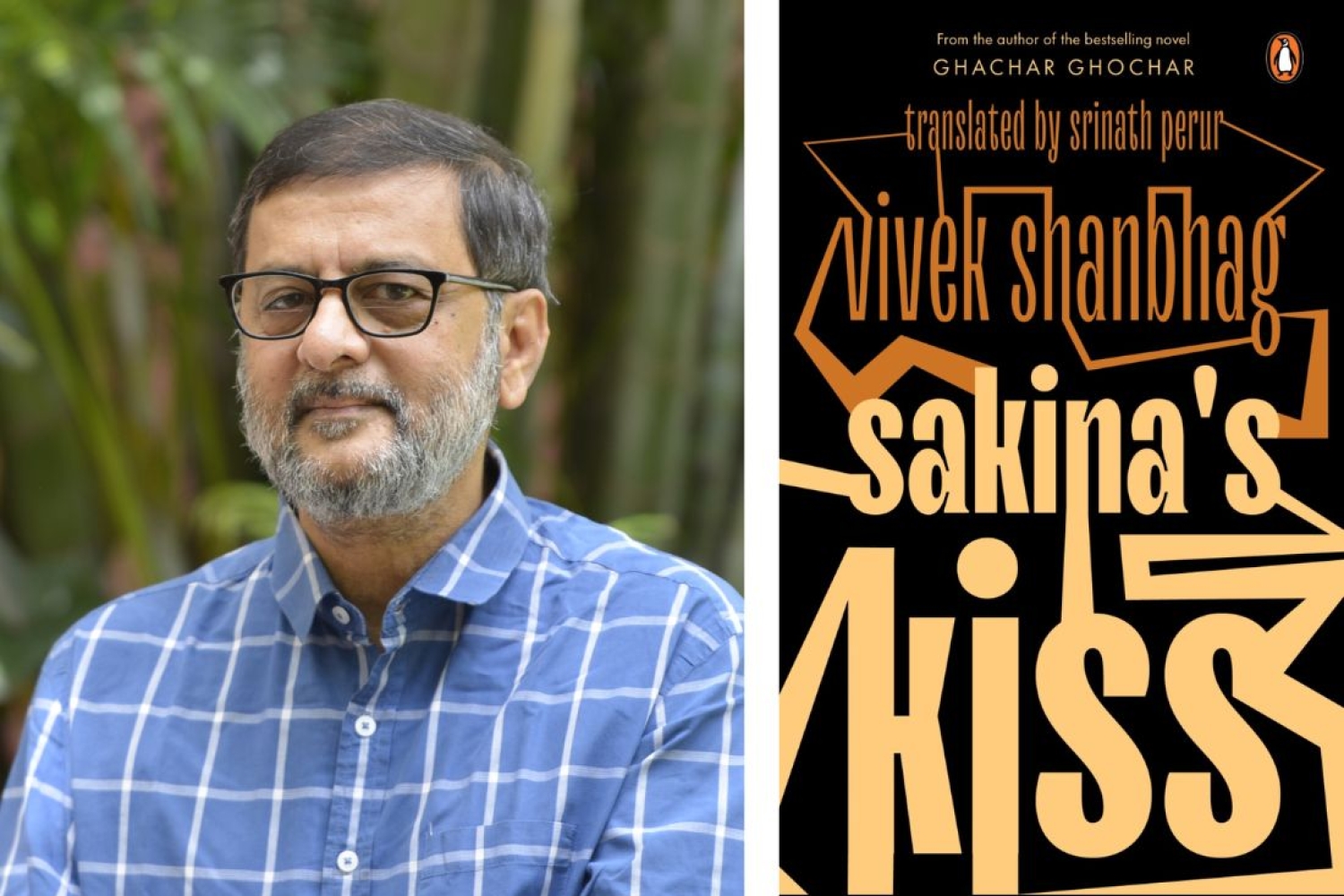

Vivek Shanbhag, known for his bestselling translated fiction Ghachar Ghochar, presents his second book to the English readers after an eight-year wait. In Sakina's Kiss, translated by Srinath Perur, Shanbhag explores themes such as family dynamics, masculinity, power, and introduces a protagonist with a penchant for self-help books. The novel takes readers on a journey through the life of Venkat, who strives to be the 'man of the house' but grapples with a disorienting question that challenges his deeply held beliefs. We talk to Shanbhag about his writing process, Indian films, family dynamics and much more!
What is your writing process?
There are two parts to this. For me the act of writing is guided by constraints rather than by choice. Before I turned a full time writer, I worked for an organisation for many years. I chose a time that least interfered with my day job. I found that early mornings, before everyone else started their day, were best for reading and writing. This habit has stayed with me even after quitting my job. Separating work life and writing with a thick line allowed me to preserve both these worlds.
Whether it is a short story or a novel, I prefer to complete the first draft in the shortest time possible. This helps me to maintain the focus required to complete the work. It is difficult to sustain the same level of intensity if the writing takes too long. Since one can’t write in a vacuum, the events around us might create a kind of self-doubt about the relevance of one’s writing. I then keep aside the first draft for a while to get adequate distance for editing the work.
What made you form a protagonist who loves reading self-help books and is searching for a meaning in life?
Characters in novels are built from various sources. At times they come fully formed, but on most occasions one has to stay a while with them to grasp minute aspects of their lives. In this case, Venkat came to me “pre-loaded” with these books and I retained them as I found them appropriate for the story.
We see a lot of people around us who think it is possible to feign experience or insight into life without actually going through it. This is similar to the belief that one can attain enlightenment by going through a few week-end courses at an ashram.
Since the book deals with Indian films, what do you think is the role of pop-culture in forming our sense of self?
Our films have always reflected the aspirations of the masses. People are drawn to them as they are the most affordable and accessible form of visual art. What fires our imagination is what contributes to the sense of self. Films have not yet lost their romantic appeal – whether it is love, family or violence. For any writer, understanding pop culture is an important aspect of understanding society. The rejection or acceptance of certain films and popular shows say a lot about the taste, mood and politics of our times.
Your last book, Ghachar Ghochar, was a family drama and Sakina's Kiss also somewhat delves into family structures, what attracts you to this notion of families?
Family is the smallest unit of Indian society unlike in the West where it is an individual. Decisions taken by an individual affect the entire family in our society. For most of us, there is no way of escaping this. Modern lifestyles and aspirations are in conflict with these societal structures and relationships. This reflects in the politics of people as well. Conflicts are fertile grounds for stories.
What do you think about the English translation of your novel? Does it bring anything new to your work?
As I have said elsewhere, my book in every translated language is a slightly different book though every sentence of the original can be found in the translation. This is because the memories evoked by the same sentence can vary in different languages. Having said that, translations provide an opportunity for me to look at my work differently and they push me to think about the question of what is essential to one’s writing. It also forces me to look at my text, stripping it from everything that I take for granted while writing in my own language. How to preserve the ambiguity and layered meanings of the original text is a huge challenge for any translator. Srinath Perur has been able to do this wonderfully well in his English translations. My translators into other Indian languages have also achieved this very well.
Words Paridhi Badgotri
Date 06.11.2023